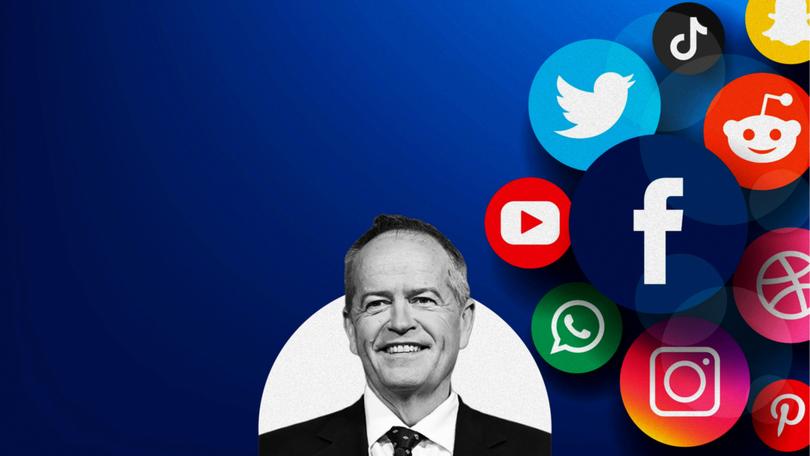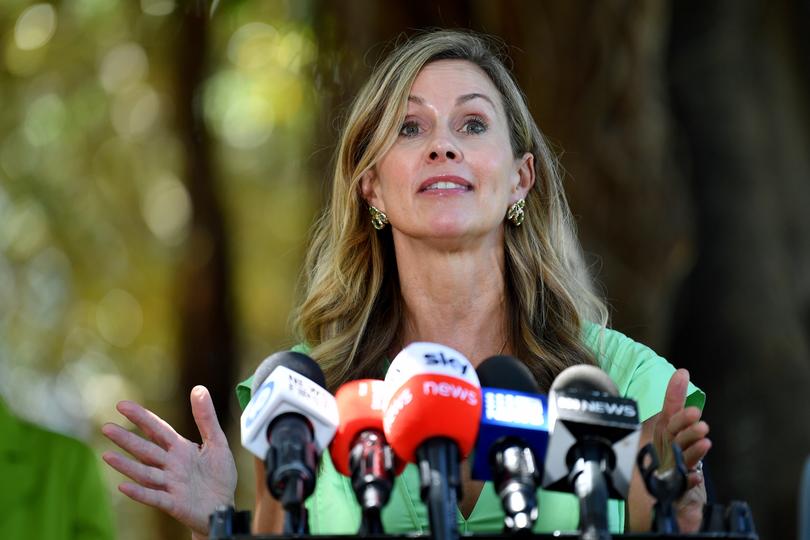BILL SHORTEN: We need to work to ensure online safety of all Australians
BILL SHORTEN: Is the dopamine hit from reading bite-sized posts and seeing life through a filter, creating an unwitting addiction?

In 2007, Channel Ten was slapped by viewers and the TV industry for using subliminal advertising throughout the ARIA Awards.
Viewers tuned in to watch some of Australia’s finest musicians perform, including Silverchair, Powderfinger and Missy Higgins, as well as some snappy zingers from host Rove McManus.
But as artists took to the stage to accept awards, viewers were also shown flashes of products from big brands like KFC, Toyota and Olay.
Sign up to The Nightly's newsletters.
Get the first look at the digital newspaper, curated daily stories and breaking headlines delivered to your inbox.
By continuing you agree to our Terms and Privacy Policy.Parents were perplexed when some light family entrainment ended up with their children inexplicably begging for a bucket of chicken, some moisturiser and a Yaris.
I may be exaggerating but it was a blatant example of subliminal messaging being attempted on TV post the longstanding 1958 ban on the practice in the UK, America and Australia.
Australia’s Commercial Television Code of Practice describes subliminal advertising as “any technique which attempts to convey information to the viewer by transmitting messages below or near the threshold of normal awareness”.
In recent days I have wondered how social media is any different. Are we really aware of what we are being served on various platforms as we mindlessly scroll through posts of friends and strangers?
Engage for more than a couple of seconds with an ad for clothes and suddenly every second post is for a clothing store.
All seems pretty innocent. Even handy in some ways because it saves us going searching for those things.
But is the dopamine hit from reading bite-sized posts and seeing life through a filter, creating an unwitting addiction?
Have social media companies figured out how to legally deal a drug that avoids regulation?
It feels as if we are at the mercy of the almighty algorithm on social media.
And while we might appreciate a recipe popping up so we don’t have to think what to cook the kids tonight, or be grateful for the comedic reel that lightens our day, what about the subjects that cast a pall over our mood, even our lives?
We saw this play out in a sinister way a few years back when Facebook (now Meta) sat on research that showed its Instagram app impacted the mental health of young women.
Between around 2019 and 2021, staff at Meta studied the impact of their product on their younger users’ states of mind, particularly in terms of body image.
The women and girls were non-consenting guinea pigs. Facebook saw it as causing them harm but did nothing.
It took a whistleblower, Frances Haugen, a product manager at Facebook, to sound the alarm.
Not only on the eating disorder crisis but the lack of safety controls in areas like Africa and the Middle East where Facebook was being used by human traffickers and armed groups.
It’s worse than just ignoring some toxic results of their products.
There have been occasions where the renamed Meta deliberately manipulated the minds and emotional outlook of customers without their knowledge or consent.
One group was given a feed featuring happy and positive content — and another had negative and sad content.
By the end of the week-long involuntary experiment, the negative feed consumers posted their own negative words and content while the positive consumers posted more positive content. Emotional contagion was proven.

Here at home, I’m sure I’m not the only one who is appalled by the fact that photos and videos of the recent tragic stabbings at Bondi made their way into circulation within minutes of the news breaking.
Just days after we were confronted with the live streaming of the stabbing of Bishop Mar Mari Emmanuel in Wakeley in Sydney.
Adding to the disturbing series of events is a billionaire in the US who is refusing to rid the platform of the offending footage under the guise of protecting free speech.
Minister for Communications, Michelle Rowland, called upon the community to avoid sharing or engaging with the video if it came up on their feeds.
The Minister said that while social media has revolutionised the way people connect “it has also become a vector for serious harms” and urged social media users to report the violent content to the platform and the eSafety Commissioner.
The eSafety Commissioner is empowered to protect Australians from viewing seriously harmful information online under the laws of our country.
While the commissioner plays an important role, it’s also a requirement of platforms that they do everything practical and reasonable to minimise the harm their content may cause the Australian community.

The eSafety Commissioner, Julie Inman Grant, was quick to act on the Wakeley stabbing and issued a global takedown notice to major platforms where videos of the event were circulating.
Let me be clear, this attack was designated an act of terrorism by the NSW Police Commissioner, which was the basis under the Online Safety Act for the eSafety Commissioner’s action to issue take-down notices in the first place.
The content was deemed Class 1 material, which is illegal under Australian law, as it was deemed to potentially incite extreme violence and radicalise audiences.
How does continually seeing this content across the globe not desensitise and potentially radicalise those watching?
I will finish on a positive note though. The Government and most of the Opposition are in agreement when it comes to upholding online standards.
The Coalition’s communications spokesman, David Coleman, said social media companies should face the “full force of the law” if they refuse to take down distressing or misleading posts on their platforms.
Sadly, but increasingly unsurprisingly, this message is not consistent with others in the Opposition party room.
If Opposition Leader Peter Dutton can rein in his more fringe elements — and sort out his own position — then perhaps we might be able to see a safer online world here for all Australians.
The Australian Government will do work to achieve that and will not be dictated to by elite billionaires and people who seek to find sport or money in throwing fuel on the embers of social division.
Bill Shorten is the Minister for the NDIS, Minister for Government Services and Federal Member for Maribyrnong
